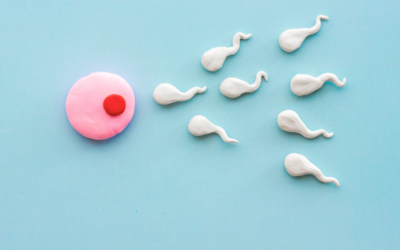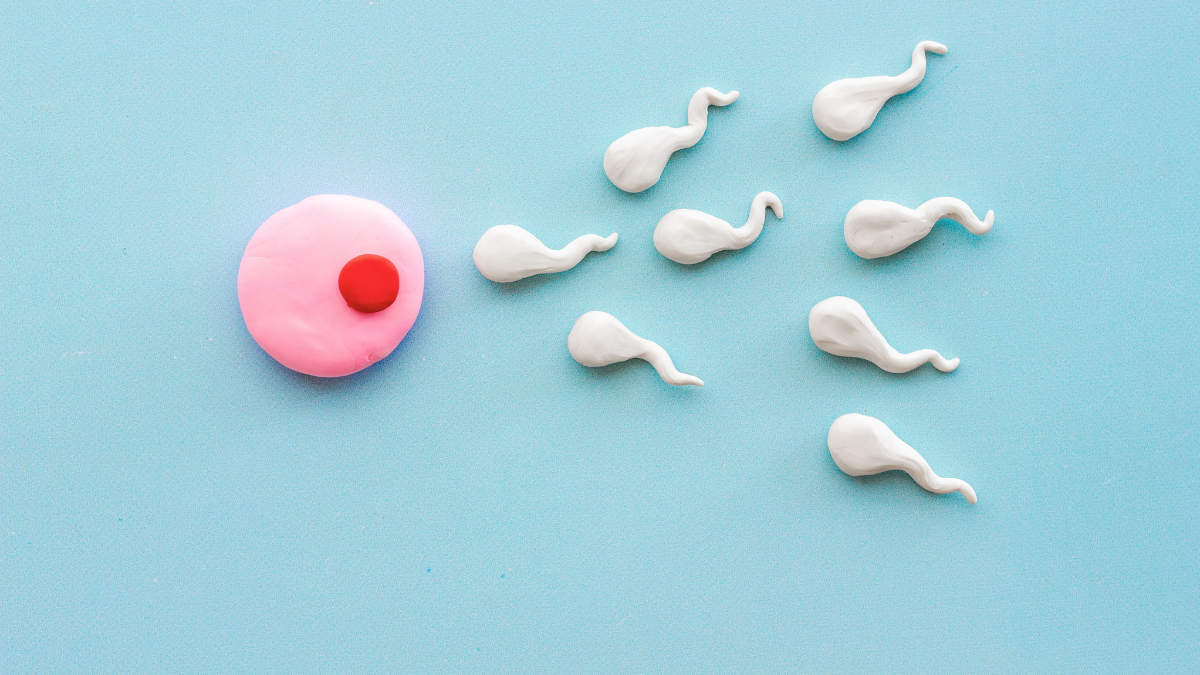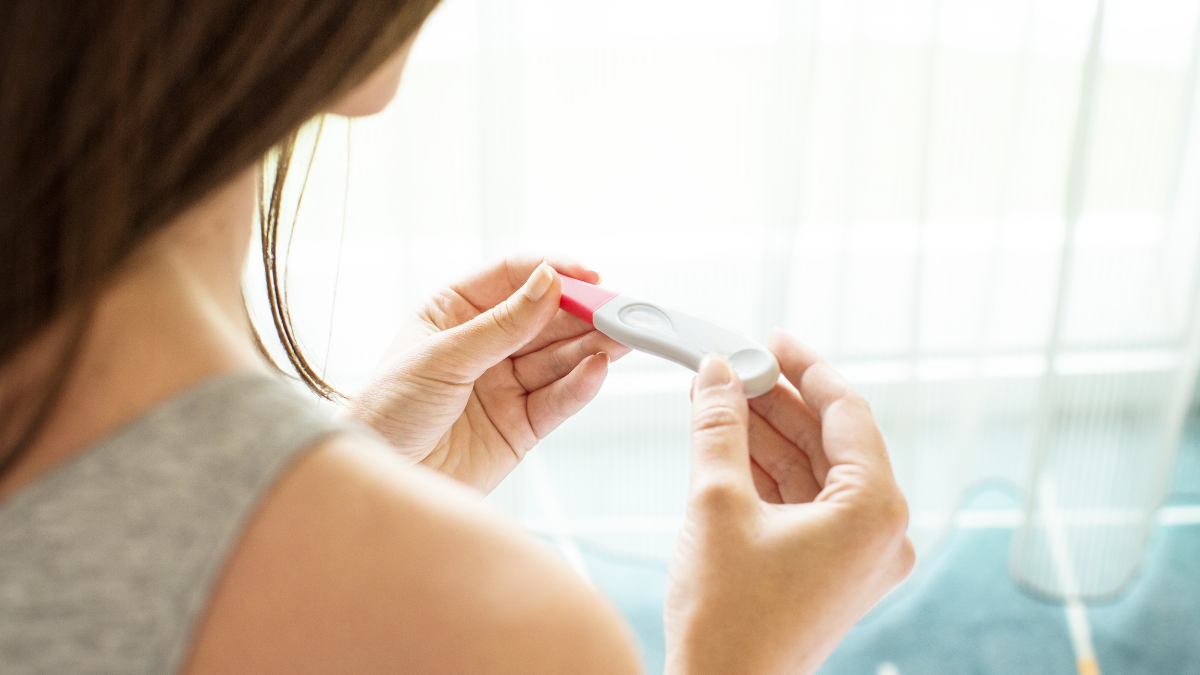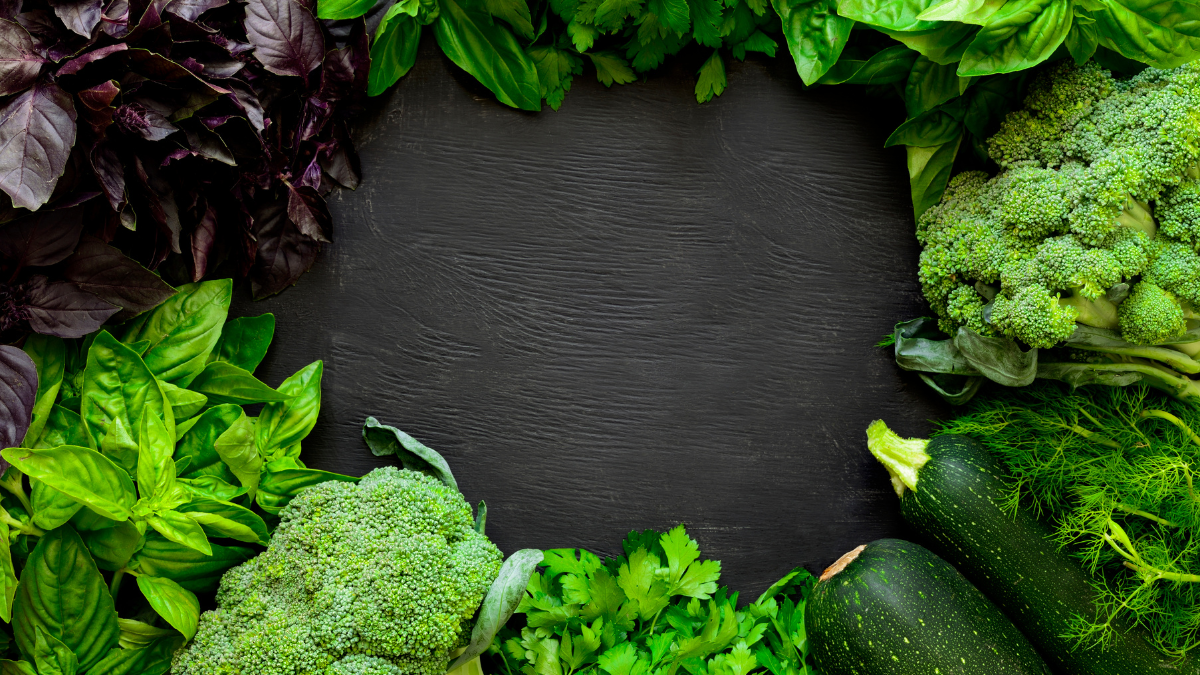Have you ever felt overwhelmed trying to understand how to conceive naturally with PCOS? You’re not alone. Polycystic Ovary Syndrome (PCOS) affects millions of women globally, and one of its most frustrating symptoms is difficulty getting pregnant. The rollercoaster of irregular cycles, hormonal imbalances, and uncertain ovulation can make the dream of becoming a mother feel out of reach.
But here’s the good news—many women with PCOS have successfully conceived naturally by making intentional, science-backed lifestyle changes. With the right knowledge and a little patience, your fertility journey doesn’t have to feel impossible. This post will walk you through seven proven strategies that have helped countless women take control of their fertility and boost their chances of conceiving naturally.
Whether you’ve just been diagnosed or have been navigating PCOS for years, you’ll find actionable steps and hopeful insights here. We’ll cover natural treatments, diet tips, stress management, and more—all backed by research and real success stories. If you’re ready to understand how to conceive naturally with PCOS, this guide is your empowering starting point.
Table of Contents
What is PCOS?
PCOS, or Polycystic Ovary Syndrome, is a hormonal disorder that affects the reproductive system of women, often during their childbearing years. It’s one of the most common causes of female infertility. Women with PCOS typically experience irregular menstrual cycles, excess androgen (male hormone) levels, and polycystic ovaries—meaning their ovaries contain many small, fluid-filled follicles that fail to release eggs regularly.
While the exact cause of PCOS remains unknown, researchers believe it’s linked to insulin resistance, inflammation, and genetic factors. Learning how to conceive naturally with PCOS starts with understanding this complex condition. PCOS doesn’t just affect your fertility; it also impacts weight, mood, skin, and long-term health risks like diabetes and heart disease.
Early diagnosis and lifestyle changes can make a huge difference in managing symptoms. The key is working with your body to support hormone balance, regulate ovulation, and create a fertility-friendly environment.
PCOS is not just about fertility—it’s also linked to weight gain, acne, insulin resistance, and even mood swings. The good news is that it’s manageable. With healthy habits and informed choices, many women balance their hormones and go on to have healthy pregnancies, naturally and joyfully.
Causes of PCOS
The causes of PCOS are multifaceted and often vary from person to person. One major contributor is insulin resistance, where the body struggles to process insulin effectively. This can lead to higher insulin levels, which in turn stimulate the ovaries to produce more androgens, interfering with ovulation.
Genetics also play a role—if your mother or sister has PCOS, your chances increase. Hormonal imbalances, such as elevated levels of luteinizing hormone (LH) or low levels of sex hormone-binding globulin (SHBG), are also common in PCOS.
Environmental factors like diet, sedentary lifestyle, chronic stress, and exposure to endocrine-disrupting chemicals can further worsen symptoms. Understanding these causes helps you take specific actions toward learning how to conceive naturally with PCOS. By addressing root issues—like balancing blood sugar and supporting hormone health—you significantly improve your chances of conception without medical intervention.
Understanding the causes of PCOS can help you make smarter choices on your fertility journey. While there’s no single cause, a few key factors contribute to this condition:
- Genetics: If your mother or sister has PCOS, you’re more likely to develop it too.
- Insulin Resistance: High insulin levels can lead your body to produce more androgens, which interfere with ovulation.
- Hormonal Imbalance: Women with PCOS often have higher levels of testosterone and luteinizing hormone (LH), both of which can disrupt egg release.
- Inflammation: Low-grade inflammation is common in PCOS and may also increase androgen production.
- Lifestyle Factors: Poor diet, lack of exercise, and high stress levels may worsen symptoms or trigger hormonal imbalances.
Knowing what’s behind PCOS doesn’t mean you’re stuck—it’s the first step toward taking back control and finding your rhythm for conceiving naturally.
Benefits of Conceiving Naturally with PCOS
Choosing to learn how to conceive naturally with PCOS offers several benefits, both for fertility and overall wellness. Unlike fertility treatments that may come with side effects or high costs, natural methods focus on restoring your body’s hormonal balance and supporting long-term health.
Here are some major benefits:
- Improved Hormonal Balance: Lifestyle changes like diet, exercise, and sleep support stable insulin and cortisol levels, which directly regulate reproductive hormones.
- Sustainable Weight Management: Natural strategies help you achieve and maintain a healthy weight, which is critical for ovulation in women with PCOS.
- Better Emotional Well-being: Avoiding the stress and pressure of fertility treatments can enhance mental health and reduce anxiety related to conception.
- Holistic Health Improvements: Strategies used for natural conception often improve digestion, energy, skin health, and reduce PCOS-related symptoms like acne and hirsutism.
- Reduced Risk of Complications: Naturally balancing your hormones can lower the risk of gestational diabetes, preeclampsia, and miscarriage during pregnancy.
Overall, working with your body empowers you to take control of your fertility in a way that supports your mind and body. These benefits make natural methods an appealing option for many women who want to know how to conceive naturally with PCOS. lead to healthier pregnancies, fewer complications, and a more peaceful journey to motherhood.
Impact of PCOS on Daily Life and Fertility
Living with PCOS doesn’t just impact your physical health—it touches every part of your daily life. For many women, the most frustrating symptom is irregular or absent periods, which makes it hard to predict ovulation. This unpredictability can create stress in relationships, especially when trying to conceive.
You may also experience weight fluctuations, fatigue, or emotional ups and downs due to hormonal imbalances. Add in acne, unwanted facial hair, or thinning scalp hair, and your self-confidence can take a hit.
When you’re trying to conceive, all of this can feel even more intense. You might constantly monitor symptoms, track cycles, and still face disappointment month after month. The emotional toll is real, and it often leads to anxiety or depression.
But there’s hope. By managing PCOS naturally, you can take small daily actions—like eating balanced meals, moving your body, and getting quality sleep—that support your fertility without overwhelming your life. These steps also help improve energy levels, mood, and mental clarity. When your body starts to feel balanced, your mind often follows.
Learning how to conceive naturally with PCOS is not just about getting pregnant—it’s about reclaiming control over your health and happiness.
How to Conceive Naturally with PCOS: 7 Proven Strategies That Work
If you’re living with PCOS and trying to conceive naturally, it can feel overwhelming and uncertain. However, implementing these seven proven, natural strategies can significantly boost your chances of getting pregnant by improving hormone balance, ovulation, and overall reproductive health.
If you’re wondering how to conceive naturally with PCOS, here are seven research-backed strategies to boost your fertility:
1. Balance Blood Sugar with a PCOS-Friendly Diet
PCOS often goes hand-in-hand with insulin resistance, which can increase androgen (male hormone) levels and disrupt ovulation. Balancing blood sugar is key to regulating hormones.
- Focus on whole foods: Choose unprocessed foods like leafy greens, cruciferous vegetables (like broccoli and cauliflower), lean meats, legumes, and healthy fats such as avocado, olive oil, and nuts.
- Avoid refined carbs and sugars: These spike insulin levels, worsening hormonal imbalance. Limit white bread, pastries, soda, and processed snacks.
- Opt for low-glycemic foods: Foods like lentils, quinoa, berries, and sweet potatoes help maintain stable blood sugar, which supports hormonal stability and regular menstrual cycles.
Combining these strategies increases your chance of conception naturally. Remember, consistency matters more than perfection.

2. Exercise Regularly
Exercise helps regulate insulin and reduce inflammation, both major contributors to PCOS symptoms.
- Aim for 30 minutes most days: Walking, cycling, yoga, swimming, and strength training are excellent choices.
- Why it matters: Regular physical activity improves your body’s insulin response, supports weight management, boosts mood, and promotes regular ovulation.

3. Track Ovulation Consistently
With PCOS, ovulation can be irregular, but it still happens for many women, just not on a predictable schedule. Identifying your fertile window is crucial.
- Use Ovulation Predictor Kits (OPKs): These detect the luteinizing hormone (LH) surge before ovulation.
- Monitor Basal Body Temperature (BBT): Charting your temperature daily can show subtle changes that confirm ovulation has occurred.
- Why this helps: Tracking ovulation helps you time intercourse more accurately, increasing the chance of conception.
4. Manage Stress
Stress triggers cortisol production, which can interfere with reproductive hormones like progesterone and estrogen, further complicating ovulation.
- Stress-relief practices: Meditation, journaling, deep breathing exercises, stretching, nature walks, or spending time with supportive people.
- Why it’s critical: Lowering stress helps restore hormonal balance, supports ovulation, and improves mental clarity during your fertility journey.

5. Get Enough Sleep
Sleep is deeply connected to hormonal regulation and metabolic function.
- Sleep goal: Aim for 7–9 hours of high-quality sleep each night.
- Tip: Keep a regular sleep schedule, limit screens before bed, and create a calming nighttime routine.
- Why it works: Poor sleep increases insulin resistance and cortisol levels, both of which can worsen PCOS symptoms and reduce fertility.
6. Maintain a Healthy Weight
Weight loss—even a modest amount—can dramatically improve fertility in women with PCOS.
- Why 5–10% matters: Losing even a small percentage of body weight can restore regular ovulation and reduce symptoms like excess hair growth and acne.
- How to do it safely: Choose sustainable methods—eat balanced meals, stay active, and avoid fad diets or extreme restrictions.
7. Use Natural Supplements (with Doctor Approval)
Some supplements have been shown to support reproductive health and hormonal balance in women with PCOS.
- Inositol (Myo & D-Chiro): Improves insulin sensitivity and may restore ovulation.
- Vitamin D: Many women with PCOS are deficient; supplementation may aid hormone balance and follicular development.
- Omega-3 Fatty Acids: Reduce inflammation and support healthy hormone function.
- Important note: Always consult your doctor or a fertility specialist before starting any supplement regimen.
By integrating these steps, you enhance your chances of success while supporting overall well-being. These are powerful steps in learning how to conceive naturally with PCOS.
Common Myths or Mistakes (how to conceive naturally with pcos)
- There are many misconceptions about how to conceive naturally with PCOS. One common myth is that women with PCOS can’t get pregnant without IVF—this is simply untrue. Many women conceive naturally by making targeted lifestyle changes.
- Another mistake is focusing solely on weight loss. While maintaining a healthy weight helps, thin women with PCOS can also struggle with fertility due to hormonal imbalances. Also, using hormonal birth control to “regulate” periods doesn’t address the root causes and may mask symptoms.
- It’s also a mistake to ignore mental health. Chronic stress can disrupt your hormones as much as a poor diet. Finally, avoid quick-fix supplements or detoxes that promise fast results—they often do more harm than good.
Understanding the facts helps you make smarter decisions and avoid frustration on your fertility journey.
Conclusion
Learning how to conceive naturally with PCOS is a journey, not a one-size-fits-all solution. But with the right knowledge and daily habits, natural conception is possible. By addressing insulin resistance, supporting hormonal balance, and prioritizing your physical and mental health, you can significantly improve your chances of getting pregnant.
These seven strategies—ranging from a nourishing diet to stress reduction—empower you to work with your body’s unique rhythm. Whether you’re newly diagnosed or have been trying to conceive for a while, every step you take toward holistic health brings you closer to your goal.
So, take a deep breath. You are not alone, and you are capable. Start with one strategy today and build from there. Small, consistent actions create powerful results over time.
Have you tried any of these tips on how to conceive naturally with PCOS? Let us know your experience or questions in the comments below. And if you found this helpful, don’t forget to share it with someone else on the same journey.
Frequently Asked Questions (how to conceive naturally with pcos)
Q1: What is PCOS in simple terms?
A: PCOS is a hormonal condition where the ovaries don’t function properly, making it harder to ovulate and get pregnant naturally.
Q2: What causes PCOS?
A: PCOS is caused by a mix of genetic, hormonal, and lifestyle factors like insulin resistance and inflammation.
Q3: How can conceiving naturally with PCOS improve my life?
A: It helps you take charge of your fertility, supports overall health, and builds confidence and emotional well-being.
Q4: Is it scientifically proven to work?
A: Yes, studies show that lifestyle changes can significantly improve ovulation and pregnancy rates in women with PCOS.
Q5: How long does it take to see results from natural methods?
A: Many women see improvements in 3–6 months, though it varies by individual.
Q6: Can anyone try natural PCOS methods, or are they only for certain people?
A: Most strategies are safe for everyone, but please check with your doctor if you have any other medical conditions.
Q7: What’s the best way to start trying naturally today?
A: Begin with a balanced diet, gentle exercise, and consistent cycle tracking. Small steps add up quickly!
Q8: Is it possible to get pregnant naturally with PCOS?
A: Yes! Many women successfully learn how to conceive naturally with PCOS through lifestyle changes, diet, and stress management.







